nofiafitri
Hi everyone.. I'm a Researcher who interesting on the political issues. I'm doing master on International Relations and Political Science at University of Indonesia. Please don't hesitate to contact me through this. I'm also the owner of Warung Data IT...
74 posts
Latest Posts by nofiafitri
Thanks ❤️










every minute spent on planning saves you ten minutes spent on execution. short essays probably don't require that much preparation beforehand, but if you're writing something longer you should probably spend some time planning first. this is the process i go through when planning my essays, and i find it works really well!
#sharingiscaring, thanks @apricitystudies ❤️
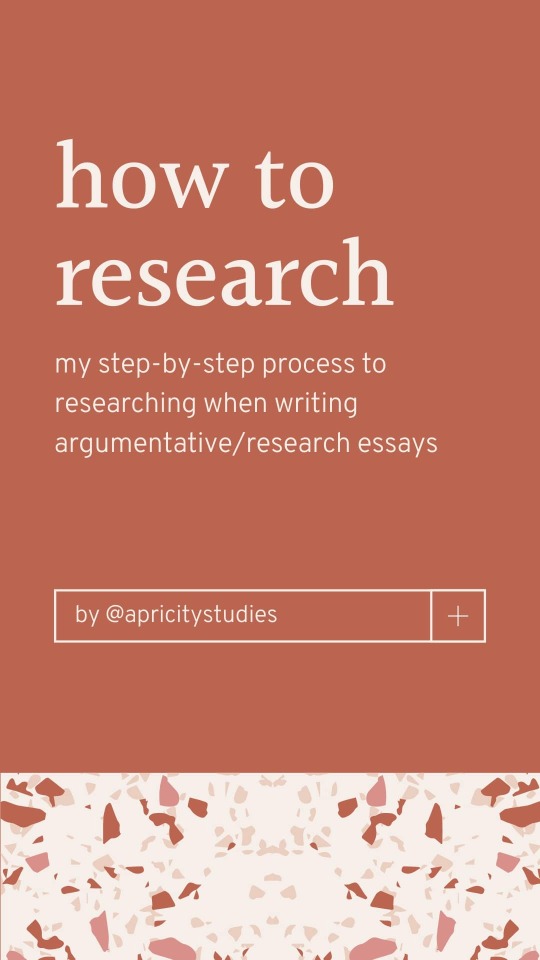
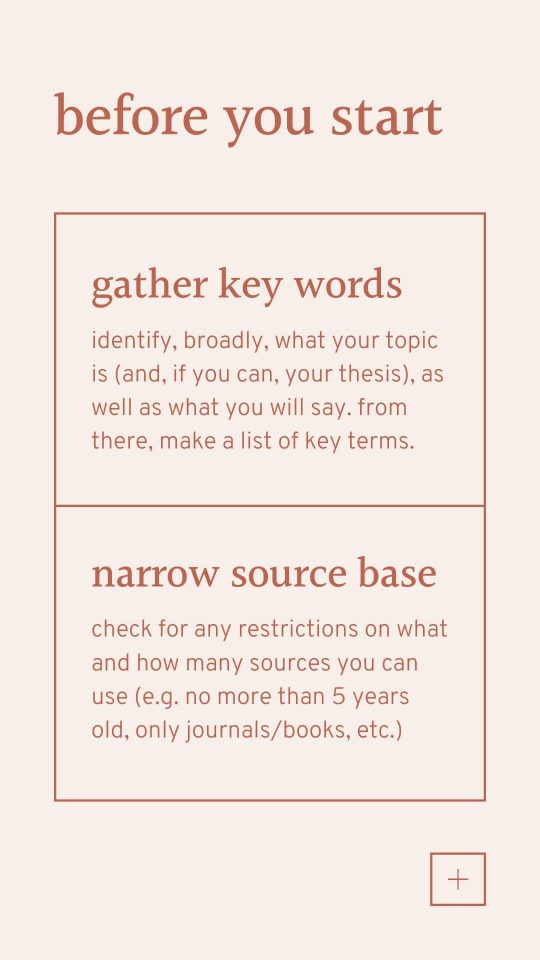
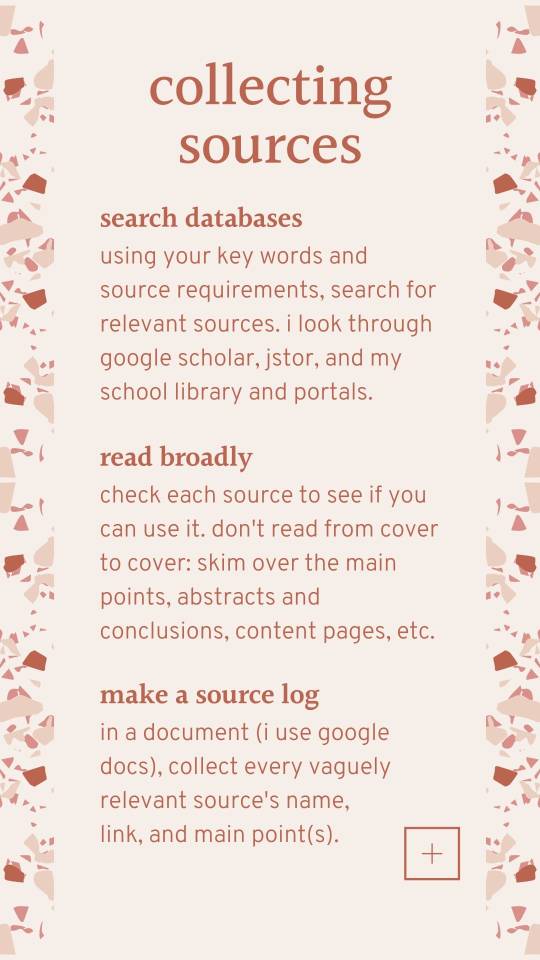
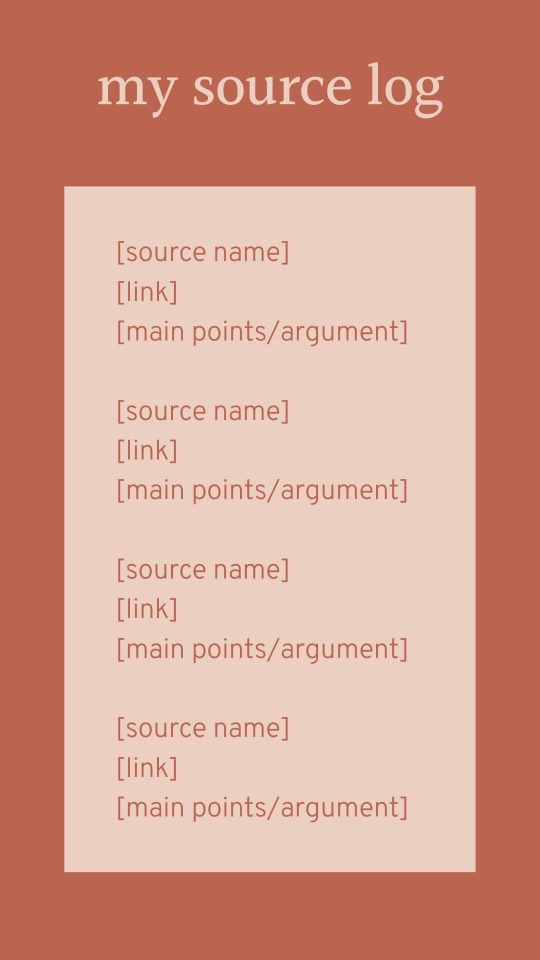
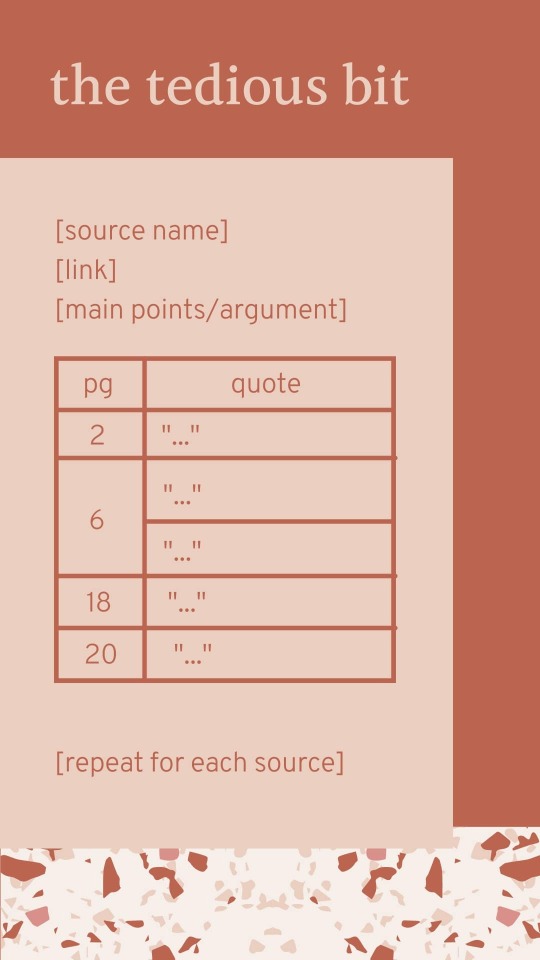



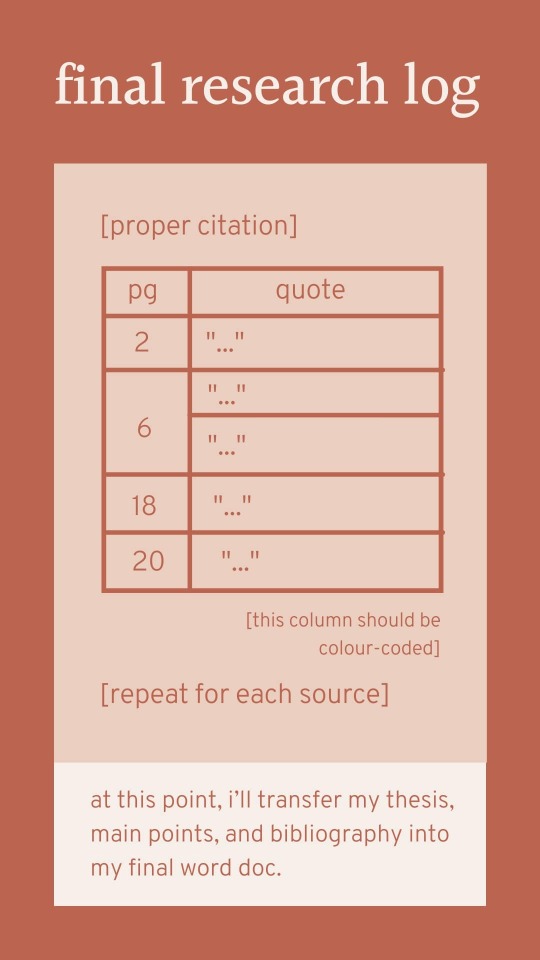

this is a breakdown of how i go about doing research for my essays! do keep in mind i am an arts student, so i don’t know how well this method carries over into other disciplines. check out my other guides to writing essays here and here!




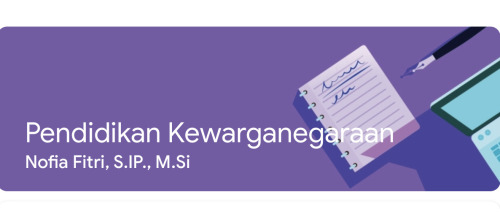
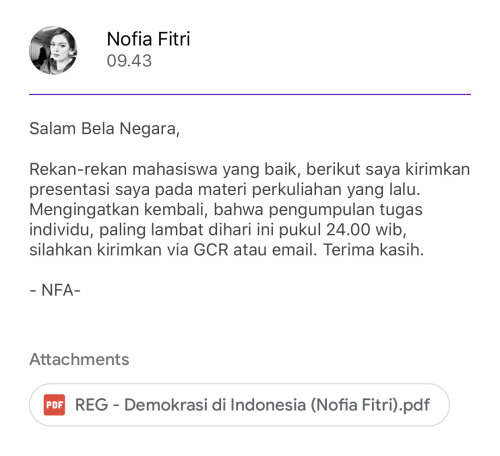
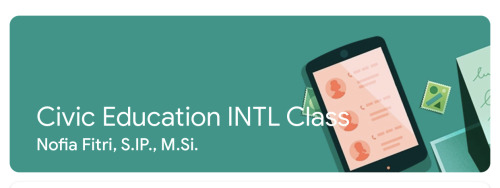

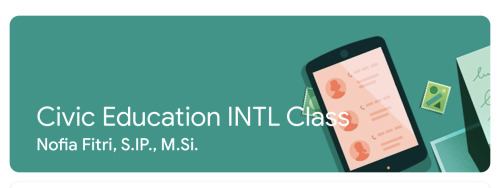




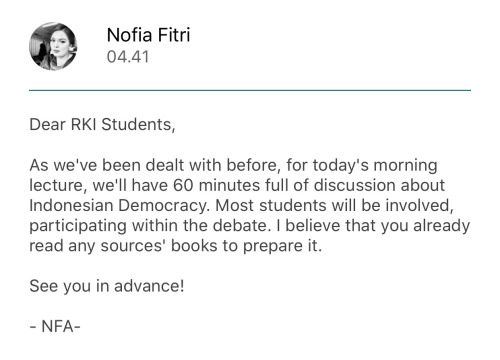

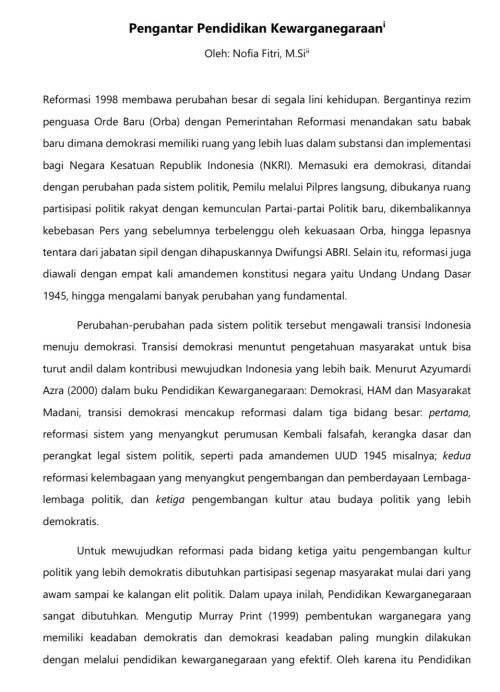




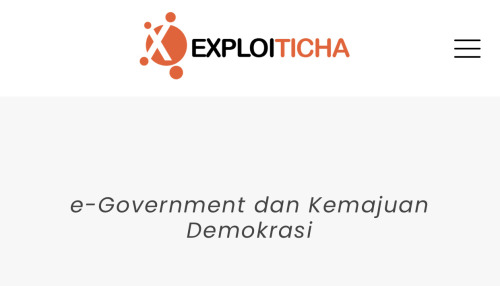
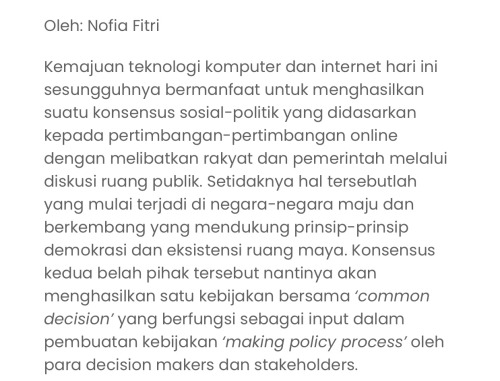
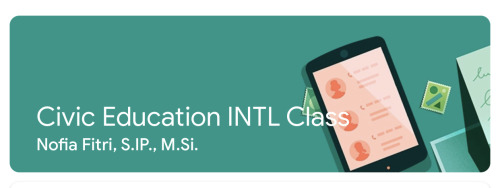
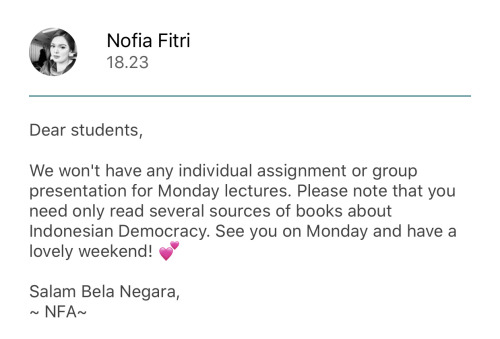
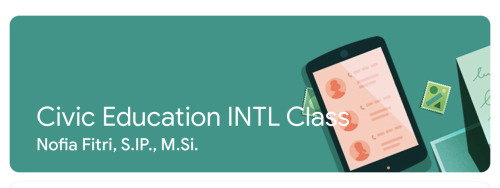




FAMOUS AUTHORS
Classic Bookshelf: This site has put classic novels online, from Charles Dickens to Charlotte Bronte.
The Online Books Page: The University of Pennsylvania hosts this book search and database.
Project Gutenberg: This famous site has over 27,000 free books online.
Page by Page Books: Find books by Sir Arthur Conan Doyle and H.G. Wells, as well as speeches from George W. Bush on this site.
Classic Book Library: Genres here include historical fiction, history, science fiction, mystery, romance and children’s literature, but they’re all classics.
Classic Reader: Here you can read Shakespeare, young adult fiction and more.
Read Print: From George Orwell to Alexandre Dumas to George Eliot to Charles Darwin, this online library is stocked with the best classics.
Planet eBook: Download free classic literature titles here, from Dostoevsky to D.H. Lawrence to Joseph Conrad.
The Spectator Project: Montclair State University’s project features full-text, online versions of The Spectator and The Tatler.
Bibliomania: This site has more than 2,000 classic texts, plus study guides and reference books.
Online Library of Literature: Find full and unabridged texts of classic literature, including the Bronte sisters, Mark Twain and more.
Bartleby: Bartleby has much more than just the classics, but its collection of anthologies and other important novels made it famous.
Fiction.us: Fiction.us has a huge selection of novels, including works by Lewis Carroll, Willa Cather, Sherwood Anderson, Flaubert, George Eliot, F. Scott Fitzgerald and others.
Free Classic Literature: Find British authors like Shakespeare and Sir Arthur Conan Doyle, plus other authors like Jules Verne, Mark Twain, and more.
TEXTBOOKS
Textbook Revolution: Find biology, business, engineering, mathematics and world history textbooks here.
Wikibooks: From cookbooks to the computing department, find instructional and educational materials here.
KnowThis Free Online Textbooks: Get directed to stats textbooks and more.
Online Medical Textbooks: Find books about plastic surgery, anatomy and more here.
Online Science and Math Textbooks: Access biochemistry, chemistry, aeronautics, medical manuals and other textbooks here.
MIT Open Courseware Supplemental Resources: Find free videos, textbooks and more on the subjects of mechanical engineering, mathematics, chemistry and more.
Flat World Knowledge: This innovative site has created an open college textbooks platform that will launch in January 2009.
Free Business Textbooks: Find free books to go along with accounting, economics and other business classes.
Light and Matter: Here you can access open source physics textbooks.
eMedicine: This project from WebMD is continuously updated and has articles and references on surgery, pediatrics and more.
MATH AND SCIENCE
FullBooks.com: This site has “thousands of full-text free books,” including a large amount of scientific essays and books.
Free online textbooks, lecture notes, tutorials and videos on mathematics: NYU links to several free resources for math students.
Online Mathematics Texts: Here you can find online textbooks likeElementary Linear Algebra and Complex Variables.
Science and Engineering Books for free download: These books range in topics from nanotechnology to compressible flow.
FreeScience.info: Find over 1800 math, engineering and science books here.
Free Tech Books: Computer programmers and computer science enthusiasts can find helpful books here.
CHILDREN’S BOOKS
byGosh: Find free illustrated children’s books and stories here.
Munseys: Munseys has nearly 2,000 children’s titles, plus books about religion, biographies and more.
International Children’s Digital Library: Find award-winning books and search by categories like age group, make believe books, true books or picture books.
Lookybook: Access children’s picture books here.
PHILOSOPHY AND RELIGION
Bored.com: Bored.com has music ebooks, cooking ebooks, and over 150 philosophy titles and over 1,000 religion titles.
Ideology.us: Here you’ll find works by Rene Descartes, Sigmund Freud, Karl Marx, David Hume and others.
Free Books on Yoga, Religion and Philosophy: Recent uploads to this site include Practical Lessons in Yoga and Philosophy of Dreams.
The Sociology of Religion: Read this book by Max Weber, here.
Religion eBooks: Read books about the Bible, Christian books, and more.
PLAYS
ReadBookOnline.net: Here you can read plays by Chekhov, Thomas Hardy, Ben Jonson, Shakespeare, Edgar Allan Poe and others.
Plays: Read Pygmalion, Uncle Vanya or The Playboy of the Western World here.
The Complete Works of William Shakespeare: MIT has made available all of Shakespeare’s comedies, tragedies, and histories.
Plays Online: This site catalogs “all the plays [they] know about that are available in full text versions online for free.”
ProPlay: This site has children’s plays, comedies, dramas and musicals.
MODERN FICTION, FANTASY AND ROMANCE
Public Bookshelf: Find romance novels, mysteries and more.
The Internet Book Database of Fiction: This forum features fantasy and graphic novels, anime, J.K. Rowling and more.
Free Online Novels: Here you can find Christian novels, fantasy and graphic novels, adventure books, horror books and more.
Foxglove: This British site has free novels, satire and short stories.
Baen Free Library: Find books by Scott Gier, Keith Laumer and others.
The Road to Romance: This website has books by Patricia Cornwell and other romance novelists.
Get Free Ebooks: This site’s largest collection includes fiction books.
John T. Cullen: Read short stories from John T. Cullen here.
SF and Fantasy Books Online: Books here include Arabian Nights,Aesop’s Fables and more.
Free Novels Online and Free Online Cyber-Books: This list contains mostly fantasy books.
FOREIGN LANGUAGE
Project Laurens Jz Coster: Find Dutch literature here.
ATHENA Textes Francais: Search by author’s name, French books, or books written by other authors but translated into French.
Liber Liber: Download Italian books here. Browse by author, title, or subject.
Biblioteca romaneasca: Find Romanian books on this site.
Bibliolteca Virtual Miguel de Cervantes: Look up authors to find a catalog of their available works on this Spanish site.
KEIMENA: This page is entirely in Greek, but if you’re looking for modern Greek literature, this is the place to access books online.
Proyecto Cervantes: Texas A&M’s Proyecto Cervantes has cataloged Cervantes’ work online.
Corpus Scriptorum Latinorum: Access many Latin texts here.
Project Runeberg: Find Scandinavian literature online here.
Italian Women Writers: This site provides information about Italian women authors and features full-text titles too.
Biblioteca Valenciana: Register to use this database of Catalan and Valencian books.
Ketab Farsi: Access literature and publications in Farsi from this site.
Afghanistan Digital Library: Powered by NYU, the Afghanistan Digital Library has works published between 1870 and 1930.
CELT: CELT stands for “the Corpus of Electronic Texts” features important historical literature and documents.
Projekt Gutenberg-DE: This easy-to-use database of German language texts lets you search by genres and author.
HISTORY AND CULTURE
LibriVox: LibriVox has a good selection of historical fiction.
The Perseus Project: Tufts’ Perseus Digital Library features titles from Ancient Rome and Greece, published in English and original languages.
Access Genealogy: Find literature about Native American history, the Scotch-Irish immigration in the 19th and 20th centuries, and more.
Free History Books: This collection features U.S. history books, including works by Paul Jennings, Sarah Morgan Dawson, Josiah Quincy and others.
Most Popular History Books: Free titles include Seven Days and Seven Nights by Alexander Szegedy and Autobiography of a Female Slave by Martha G. Browne.
RARE BOOKS
Questia: Questia has 5,000 books available for free, including rare books and classics.
ARTS AND ENTERTAINMENT
Books-On-Line: This large collection includes movie scripts, newer works, cookbooks and more.
Chest of Books: This site has a wide range of free books, including gardening and cooking books, home improvement books, craft and hobby books, art books and more.
Free e-Books: Find titles related to beauty and fashion, games, health, drama and more.
2020ok: Categories here include art, graphic design, performing arts, ethnic and national, careers, business and a lot more.
Free Art Books: Find artist books and art books in PDF format here.
Free Web design books: OnlineComputerBooks.com directs you to free web design books.
Free Music Books: Find sheet music, lyrics and books about music here.
Free Fashion Books: Costume and fashion books are linked to the Google Books page.
MYSTERY
MysteryNet: Read free short mystery stories on this site.
TopMystery.com: Read books by Edgar Allan Poe, Sir Arthur Conan Doyle, GK Chesterton and other mystery writers here.
Mystery Books: Read books by Sue Grafton and others.
POETRY
The Literature Network: This site features forums, a copy of The King James Bible, and over 3,000 short stories and poems.
Poetry: This list includes “The Raven,” “O Captain! My Captain!” and “The Ballad of Bonnie and Clyde.”
Poem Hunter: Find free poems, lyrics and quotations on this site.
Famous Poetry Online: Read limericks, love poetry, and poems by Robert Browning, Emily Dickinson, John Donne, Lord Byron and others.
Google Poetry: Google Books has a large selection of poetry, fromThe Canterbury Tales to Beowulf to Walt Whitman.
QuotesandPoem.com: Read poems by Maya Angelou, William Blake, Sylvia Plath and more.
CompleteClassics.com: Rudyard Kipling, Allen Ginsberg and Alfred Lord Tennyson are all featured here.
PinkPoem.com: On this site, you can download free poetry ebooks.
MISC
Banned Books: Here you can follow links of banned books to their full text online.
World eBook Library: This monstrous collection includes classics, encyclopedias, children’s books and a lot more.
DailyLit: DailyLit has everything from Moby Dick to the recent phenomenon, Skinny Bitch.
A Celebration of Women Writers: The University of Pennsylvania’s page for women writers includes Newbery winners.
Free Online Novels: These novels are fully online and range from romance to religious fiction to historical fiction.
ManyBooks.net: Download mysteries and other books for your iPhone or eBook reader here.
Authorama: Books here are pulled from Google Books and more. You’ll find history books, novels and more.
Prize-winning books online: Use this directory to connect to full-text copies of Newbery winners, Nobel Prize winners and Pulitzer winners.
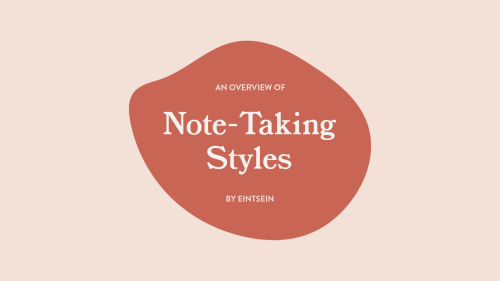

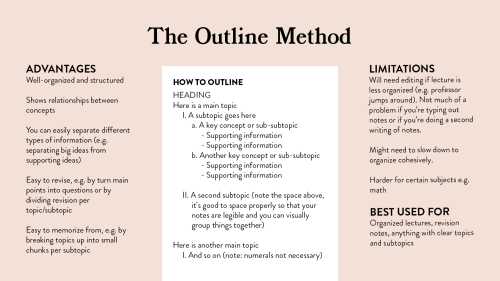
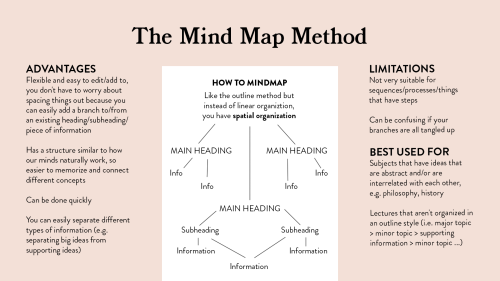

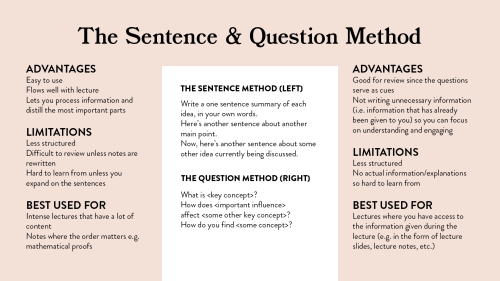


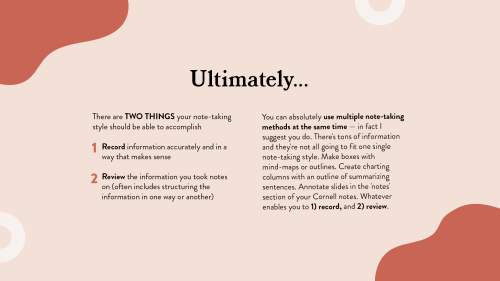
An Overview of Note-Taking Styles
Note-taking is one of the most essential skills a student should master. It allows you to record and review information to be used in the future. But what’s the best way to do so? Here’s an overview of note-taking styles that can help you maximize your learning!



Solar System: 10 Ways Interns Are Exploring Space With Us
Simulating alien worlds, designing spacecraft with origami and using tiny fossils to understand the lives of ancient organisms are all in a day’s work for interns at NASA.
Here’s how interns are taking our missions and science farther.
1. Connecting Satellites in Space

Becca Foust looks as if she’s literally in space – or, at least, on a sci-fi movie set. She’s surrounded by black, except for the brilliant white comet model suspended behind her. Beneath the socks she donned just for this purpose, the black floor reflects the scene like perfectly still water across a lake as she describes what happens here: “We have five spacecraft simulators that ‘fly’ in a specially designed flat-floor facility,” she says. “The spacecraft simulators use air bearings to lift the robots off the floor, kind of like a reverse air hockey table. The top part of the spacecraft simulators can move up and down and rotate all around in a similar way to real satellites.” It’s here, in this test bed on the Caltech campus, that Foust is testing an algorithm she’s developing to autonomously assemble and disassemble satellites in space. “I like to call it space K’nex, like the toys. We’re using a bunch of component satellites and trying to figure out how to bring all of the pieces together and make them fit together in orbit,” she says. A NASA Space Technology Research Fellow, who splits her time between Caltech and NASA’s Jet Propulsion Laboratory (JPL), working with Soon-Jo Chung and Fred Hadaegh, respectively, Foust is currently earning her Ph.D. at the University of Illinois at Urbana-Champaign. She says of her fellowship, “I hope my research leads to smarter, more efficient satellite systems for in-space construction and assembly.”
2. Diving Deep on the Science of Alien Oceans

Three years ago, math and science were just subjects Kathy Vega taught her students as part of Teach for America. Vega, whose family emigrated from El Salvador, was the first in her family to go to college. She had always been interested in space and even dreamed about being an astronaut one day, but earned a degree in political science so she could get involved in issues affecting her community. But between teaching and encouraging her family to go into science, It was only a matter of time before she realized just how much she wanted to be in the STEM world herself. Now an intern at NASA JPL and in the middle of earning a second degree, this time in engineering physics, Vega is working on an experiment that will help scientists search for life beyond Earth.
“My project is setting up an experiment to simulate possible ocean compositions that would exist on other worlds,” says Vega. Jupiter’s moon Europa and Saturn’s moon Enceladus, for example, are key targets in the search for life beyond Earth because they show evidence of global oceans and geologic activity. Those factors could allow life to thrive. JPL is already building a spacecraft designed to orbit Europa and planning for another to land on the icy moon’s surface. “Eventually, [this experiment] will help us prepare for the development of landers to go to Europa, Enceladus and another one of Saturn’s moons, Titan, to collect seismic measurements that we can compare to our simulated ones,” says Vega. “I feel as though I’m laying the foundation for these missions.”
3. Unfolding Views on Planets Beyond Our Solar System

“Origami is going to space now? This is amazing!” Chris Esquer-Rosas had been folding – and unfolding – origami since the fourth grade, carefully measuring the intricate patterns and angles produced by the folds and then creating new forms from what he’d learned. “Origami involves a lot of math. A lot of people don’t realize that. But what actually goes into it is lots of geometric shapes and angles that you have to account for,” says Esquer-Rosas. Until three years ago, the computer engineering student at San Bernardino College had no idea that his origami hobby would turn into an internship opportunity at NASA JPL. That is, until his long-time friend, fellow origami artist and JPL intern Robert Salazar connected him with the Starshade project. Starshade has been proposed as a way to suppress starlight that would otherwise drown out the light from planets outside our solar system so we can characterize them and even find out if they’re likely to support life. Making that happen requires some heavy origami – unfurling a precisely-designed, sunflower-shaped structure the size of a baseball diamond from a package about half the size of a pitcher’s mound. It’s Esquer-Rosas’ project this summer to make sure Starshade’s “petals” unfurl without a hitch. Says Esquer-Rosas, “[The interns] are on the front lines of testing out the hardware and making sure everything works. I feel as though we’re contributing a lot to how this thing is eventually going to deploy in space.”
4. Making Leaps in Extreme Robotics

Wheeled rovers may be the norm on Mars, but Sawyer Elliott thinks a different kind of rolling robot could be the Red Planet explorer of the future. This is Elliott’s second year as a fellow at NASA JPL, researching the use of a cube-shaped robot for maneuvering around extreme environments, like rocky slopes on Mars or places with very little gravity, like asteroids. A graduate student in aerospace engineering at Cornell University, Elliott spent his last stint at JPL developing and testing the feasibility of such a rover. “I started off working solely on the rover and looking at can we make this work in a real-world environment with actual gravity,” says Elliott. “It turns out we could.” So this summer, he’s been improving the controls that get it rolling or even hopping on command. In the future, Elliott hopes to keep his research rolling along as a fellow at JPL or another NASA center. “I’m only getting more and more interested as I go, so I guess that’s a good sign,” he says.
5. Starting from the Ground Up

Before the countdown to launch or the assembling of parts or the gathering of mission scientists and engineers, there are people like Joshua Gaston who are helping turn what’s little more than an idea into something more. As an intern with NASA JPL’s project formulation team, Gaston is helping pave the way for a mission concept that aims to send dozens of tiny satellites, called CubeSats, beyond Earth’s gravity to other bodies in the solar system. “This is sort of like step one,” says Gaston. “We have this idea and we need to figure out how to make it happen.” Gaston’s role is to analyze whether various CubeSat models can be outfitted with the needed science instruments and still make weight. Mass is an important consideration in mission planning because it affects everything from the cost to the launch vehicle to the ability to launch at all. Gaston, an aerospace engineering student at Tuskegee University, says of his project, “It seems like a small role, but at the same time, it’s kind of big. If you don’t know where things are going to go on your spacecraft or you don’t know how the spacecraft is going to look, it’s hard to even get the proposal selected.”
6. Finding Life on the Rocks

By putting tiny samples of fossils barely visible to the human eye through a chemical process, a team of NASA JPL scientists is revealing details about organisms that left their mark on Earth billions of years ago. Now, they have set their sights on studying the first samples returned from Mars in the future. But searching for signatures of life in such a rare and limited resource means the team will have to get the most science they can out of the smallest sample possible. That’s where Amanda Allen, an intern working with the team in JPL’s Astrobiogeochemistry, or abcLab, comes in. “Using the current, state-of-the-art method, you need a sample that’s 10 times larger than we’re aiming for,” says Allen, an Earth science undergraduate at the University of California, San Diego, who is doing her fifth internship at JPL. “I’m trying to get a different method to work.” Allen, who was involved in theater and costume design before deciding to pursue Earth science, says her “superpower” has always been her ability to find things. “If there’s something cool to find on Mars related to astrobiology, I think I can help with that,” she says.
7. Taking Space Flight Farther

If everything goes as planned and a thruster like the one Camille V. Yoke is working on eventually helps send astronauts to Mars, she’ll probably be first in line to play the Mark Watney role. “I’m a fan of the Mark Watney style of life [in “The Martian”], where you’re stranded on a planet somewhere and the only thing between you and death is your own ability to work through problems and engineer things on a shoestring,” says Yoke. A physics major at the University of South Carolina, Yoke is interning with a team that’s developing a next-generation electric thruster designed to accelerate spacecraft more efficiently through the solar system. “Today there was a brief period in which I knew something that nobody else on the planet knew – for 20 minutes before I went and told my boss,” says Yoke. “You feel like you’re contributing when you know that you have discovered something new.”
8. Searching for Life Beyond Our Solar System

Without the option to travel thousands or even tens of light-years from Earth in a single lifetime, scientists hoping to discover signs of life on planets outside our solar system, called exoplanets, are instead creating their own right here on Earth. This is Tre’Shunda James’ second summer simulating alien worlds as an intern at NASA JPL. Using an algorithm developed by her mentor, Renyu Hu, James makes small changes to the atmospheric makeup of theoretical worlds and analyzes whether the combination creates a habitable environment. “This model is a theoretical basis that we can apply to many exoplanets that are discovered,” says James, a chemistry and physics major at Occidental College in Los Angeles. “In that way, it’s really pushing the field forward in terms of finding out if life could exist on these planets.” James, who recently became a first-time co-author on a scientific paper about the team’s findings, says she feels as though she’s contributing to furthering the search for life beyond Earth while also bringing diversity to her field. “I feel like just being here, exploring this field, is pushing the boundaries, and I’m excited about that.”
9. Spinning Up a Mars Helicopter

Chloeleen Mena’s role on the Mars Helicopter project may be small, but so is the helicopter designed to make the first flight on the Red Planet. Mena, an electrical engineering student at Embry-Riddle Aeronautical University, started her NASA JPL internship just days after NASA announced that the helicopter, which had been in development at JPL for nearly five years, would be going to the Red Planet aboard the Mars 2020 rover. This summer, Mena is helping test a part needed to deploy the helicopter from the rover once it lands on Mars, as well as writing procedures for future tests. “Even though my tasks are relatively small, it’s part of a bigger whole,” she says.
10. Preparing to See the Unseen on Jupiter’s Moon Europa

In the 2020s, we’re planning to send a spacecraft to the next frontier in the search for life beyond Earth: Jupiter’s moon Europa. Swathed in ice that’s intersected by deep reddish gashes, Europa has unveiled intriguing clues about what might lie beneath its surface – including a global ocean that could be hospitable to life. Knowing for sure hinges on a radar instrument that will fly aboard the Europa Clipper orbiter to peer below the ice with a sort of X-ray vision and scout locations to set down a potential future lander. To make sure everything works as planned, NASA JPL intern Zachary Luppen is creating software to test key components of the radar instrument. “Whatever we need to do to make sure it operates perfectly during the mission,” says Luppen. In addition to helping things run smoothly, the astronomy and physics major says he hopes to play a role in answering one of humanity’s biggest questions. “Contributing to the mission is great in itself,” says Luppen. “But also just trying to make as many people aware as possible that this science is going on, that it’s worth doing and worth finding out, especially if we were to eventually find life on Europa. That changes humanity forever!”
Read the full web version of this week’s ‘Solar System: 10 Things to Know” article HERE.
Make sure to follow us on Tumblr for your regular dose of space: http://nasa.tumblr.com.
hi there! i’m a high schooler and i’m seriously considering majoring in computer science when the time comes. do you think you could maybe talk a little bit about what it’s like studying comp sci? if you can. i hope you’re having a great day
hope you’re having a great day too!
What my first year of studying computer science was like
obligatory preface that courses differ between universities and colleges. i study in australia.
The biggest challenge I faced per se going into comp sci was how nothing I did at school prepared me for it. The kind of content I’ve learnt wasn’t similiar to school and the assignments have been very different. No analytical essays and scientific reports for me (there has been essays and reports tho). In my school IT class I learnt basic HTML and CSS which was the only programming knowledge I went into comp sci with. (Id also gotten pretty far on khan academy’s JavaScript course in like year ten but I’ve forgotten all of that now lol).
I have four units a semester and have completed my first year (of 3, although I’m taking less units this year so I’ll finish in 3.5 years).
What I actually did in my first year:
Semester 1 (pre-major picking, two of these were for the other major option)
Learnt general computer hardware and how it functions. The assignment was using a raspberry pi to do something that used hardware (the pi), software (basic code) and the internet (I used twitter). My project is on Twitter at SunsetIFB102
Group project app design stages. Like drawing the layouts, getting feedback, then digital sketches then semi fancy looking sketches (not comp sci major)
Python! I really liked this. Taught the basics of python and in general programming. It was kind of intimidating how many people had coded before so I had to focus on ignoring them and learning for myself. Also really salty I was 1% off a high distinction for the whole unit AGH
Databases and SQL. This would’ve been a useful unit if the lecturer was, how do I put this kindly, good at his job. (Not comp sci major, although definitely use databases later on)
Semester two (all comp sci major)
C# , basics of object oriented programming principles. Which is a fancy way of saying it taught how you should write your code so it’s laid out effectively.
C, how to program microprocessors. Basically how to program hardware machines. C is mostly used for machines like ATMs, a fridge perhaps, probably a roomba and other single purpose kind of things. Also from this I can program arduinos and read arduino code easier since arduino code is a C/C++ hybrid. (This and the previous unit had high fail rates and were honestly Tough)
Information security (apart of network security minor) This unit talked about processes of protecting information in organisations and on a single person level. Basics of cryptography was discussed and hashes and how ways information is kept secure when transferring between objects (like over the internet)
Computation mathematics (apart of intelligent systems minor). This was a weird unit to me and was mostly math majors. It taught all these different equations which allow you to make approximations. Honestly confused how it’s used for computers but we learnt MATLAB and it’s a pre requisite for an intro to robotics unit I’m taking this year :)
So yeah, that’s an account of what I actually studied. Reading over it it seems way more impressive than it probably was. Computer science isn’t easy (well, unless you want to scrape a pass each time) but it isn’t horribly difficult. It’s how different it is to high school work that can trip you up. I can’t make aesthetic studyblr notes on paper because its all on my computer and can’t turn it off when studying because I need it.
My assignments are typically big coding projects, exams (multiple choice if a coding unit) and essays if it deals with theory (like info sec did).
This coming semester I’m learning Java and GUI’s (graphical user interfaces), JavaScript and HTML and whatever else for web applications, and discrete maths which seems to be for notation used later on... it looks very strange.
Hope this helps! If you have any more questions feel free to DM me!
Also if anyone else wants to add their experiences, feel free to reblog with your tips.

First post in 2020
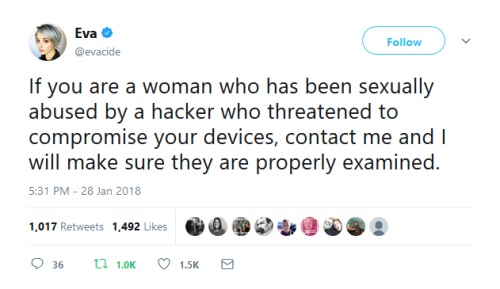
The director of cybersecurity from the Electronic Freedom Foundation is offering to help women who have been threatened with compromise of their devices.
(Med anon here) I wanted to know about the way you study, tips on subjects like anatomy and physiology, how to balance studying and having free time, dealing with exam anxiety, making new friends being an introvert...
hi! this is a lot to answer but I’ll do my best! :D
How I study:
I take notes on my laptop during lectures, and make notes on any pre-reading or e-learning we are set. For tutorials I do a lot of reading before writing an essay. I usually make structured notes on the topic, then try and work these into an essay-structure before making a ‘proper’ plan and then writing it up.
For exams, I will turn my lecture notes and notes from essays into “essay plans”. These plans are extensive, they are notes on the topic broadly (e.g. smooth muscle) and then I will use the relevant bits of that plan in a more specific question in the exam. I do this because the majority of my exams are essay-based for the first 3 years.
For my MCQ exams I use Anki(flashcard app) to make flashcards on common questions. This year my medic group also had a joint quizlet page and all added flashcards/questions to this bank for us all to use.
I also like to use a range of studying methods: I will make notes, posters, mind-maps, flashcards.
I really like to condense and summarise my notes as well: I will take a 4 page essay plan and try and summarise it onto 2 sides, then 1 A4, then 1 flashcard etc. I find that this really helps solidify the information in my head.
Here’s a link to a post I did about different ways to study
Anatomy and physiology:
Learning anatomy is a bore! I have no quick fix to be honest with you. You just have to be consistent with it and don’t le it slip. I think with anatomy it is best to study little and often - read about a topic 10mins every day and that will do a lot if you keep it up!
There are anatomy flashcards you can get and use, as well as many other apps that you can get.
The website: teachmeanatomy is really good and I used that quite a lot in my first 2 years
I find that diagrams help me loads in physiology - e.g. drawing out cells in the nephron when studying ion/electrolyte balance and ultrafiltration/reabsorption.
How to balance studying and time off:
It is so important to work on your time management! It can be a good idea to schedule in time off into your planner to make sure that you don’t end up just working all day!
Make plans with friends. If your time off is just for you to be alone in your room then you may end up working just to fill the time you have available. If you make plans to meet X at Y and do Z, then you have to stick with that - plus you get to socialise and do nice things like go for coffee/to the cinema etc. too!
Joining societies can be a really good way to make sure you take time off. Sports training or orchestra rehearsals or committee meetings are all ‘commitments’ but are also time off (they should be fun anyway!) and time to socialise. There’s also the perk of the socials that societies put on.
Here’s a post I did on time management
Dealing with exam anxiety:
I have found that having a routine for the morning of an exam helps to calm me down. Doing the same thing can be cathartic - and it can make you a lot calmer going into the exam.
Rationalise yourself - this is easier said than done! But it is so so important to remember that academics and exams are not the be all and end all.
You still need down time during revision season, so make sure to schedule time-off. In exam season I will organise things to do with friends, as this distracts me most, not giving me the opportunity to get anxious (my friends really help with any anxiety I have - but you do what’s best for you - this might be sitting reading in a relaxing bath!)
Here’s a post I did on dealing with exam stress and anxiety
Here’s a post I did on what to do the night before an exam
Making new friends (while being an introvert):
This is really daunting - especially if you are a quiet and introverted person. I wouldn’t call myself an introvert (nor an extrovert) but I do find new environments and loads of new people pretty intimidating. I think the important thing is to force yourself out of your comfort zone, really make the extra effort to talk to people even if it feels awkward - they’re probably as nervous and awkward as you are!
When starting med school take comfort in the fact that everyone is in the same boat and they are all new to this too, and most likely know no-one else. You know that everyone in your med year has a common interest of enjoying learning about medicine - so that’s an easy conversation starter, then all the basics about where people are from etc. etc. and you’ll be chatting and making friends in no-time
Joining societies is a brill way to make friends - again you will all have a shared interest - so talk about that, and if it’s an activity then you will bond while doing that! I’d recommend giving anything you’re interested in a go, at least for a few sessions - worst comes to worst you can quit and there’s no repercussions of that so you might as well give it a go!
I hope this helps :D

Google are offering free online courses in Data & Tech. All you need is a Google account in order to access them. These courses are created from a variety of institutions such as the Open University. You can also add these courses to your LinkedIn profile.
Data and Tech Courses
Understand the basics of code
How to increase productivity at work
Understand the basics of machine learning
Improve your online business security
Google Cloud Platform Fundamentals: Core Infrastructure
Google Cloud Platform Big Data and Machine Learning Fundamentals
Machine Learning Crash Course
Elements of AI
Technical Support Fundamentals
Fundamentals of Graphic Design
Foundations of Everyday Leadership
Securing Digital Democracy
Computational Thinking for Problem Solving
Programming for Everybody (Getting Started with Python)
Front-End Web UI Frameworks and Tools: Bootstrap 4
Search Engine Optimization Fundamentals
Research Proposal: Initiating Research
Introduction to Cybersecurity for Business
Python Basics
Exploring and Preparing your Data with BigQuery
Enterprise System Management and Security
Software Development Processes and Methodologies
Marketing in a Digital World
Cloud Computing Concepts, Part 1
Kotlin for Java Developers
Initiating and Planning Projects
SQL for Data Science
Fundamentals of Network Communication
Database Management Essentials
What is Data Science?
Intro to TensorFlow for Deep Learning
Introduction to Python Programming
Version Control with Git
Object-Oriented JavaScript
Introduction to Cybersecurity
SQL for Data Analysis
Intro to JavaScript
Build Native Mobile Apps with Flutter
Kotlin Bootcamp for Programmers
Developing Android Apps with Kotlin
Think like a computer: the logic of programming
Build your first web pages with HTML and CSS
Learn programming with JavaScript
Free Career development courses from Google are available here
Free Digital Marketing courses from Google are available here
We'll be back soon! ;) *beta version
Hi Exploithinkers, selamat datang di EXPLOITICHA, semua informasi yang ingin kalian ketahui tentang Cyberpolitics. Konsentrasi riset kami adalah hubungan antara dunia siber, khususnya Hacking Computer dengan Sosial-Politik, baik lokal maupun global.
Untuk pertanyaan lebih lanjut, silahkan sampaikan disini atau email kami di exploit@exploiticha.id
https://exploiticha.id/about/


Happy day... ❤️
-Fenomena “Local Bossism” dan Kegagalan Partai Politik-
Oleh: Nofia Fitri (INSPESIA Researcher)
Pada dasarnya aku bukan tipikal "student" yang begitu tertarik dengan riset-riset tentang Desentralisasi dan bagaimana implementasi otonomi daerah itu sendiri di Indonesia. Apalagi faktanya di negeri ini, memberikan kewenangan kepada daerah justru memperbesar potensi korupsi dan authority para penguasa-penguasa lokal, ditambah lagi bargaining antar Partai dengan para pemilik modal yang birahi terhadap kekuasaan Politik.
Artikel berikut adalah sedikit pandangan ku tentang apa yang terjadi di Banten dan Fenomena Local Bossism.
Alhamdulillah artikel ini cukup mendapat apresiasi dari Dosen ku Ibu Riaty Rafiudin Ph.D, tapi bukan pada penyajian analisisnya, karena jujur metode pengumpulan data melalui kepustakaan tidaklah cukup menjawab permasalahan yang diangkat. Namun teknik penulisan dan gaya bahasa yang dipakai yang menampillkan orisinalitas seorang penulis akademis.
Thanks God, sedikit semangat untuk mengembalikan produktivitas seorang Penulis (baca: Peneliti) ditahun 2018.
Semoga bermanfaat kawan-kawan! ;)
http://nofiafitri.id/fenomena-local-bossism-dan-kegagalan-partai-politik/.html

Edisi #JumatBerkah mempersiapkan Personal Page dan lembaga pengkajian pemilu dan kebijakan publik bersama kawan-kawan UI.
#PoliticalConsultant #PublicPolicy #PoliticalPolicy #IndonesianPolitics #Election


7 Tahun Aliansi Kebangsaan terus berkiprah demi mewujudkan cita cita Bangsa Indonesia untuk Merdeka, Bersatu, Berdaulat, Adil dan Makmur.